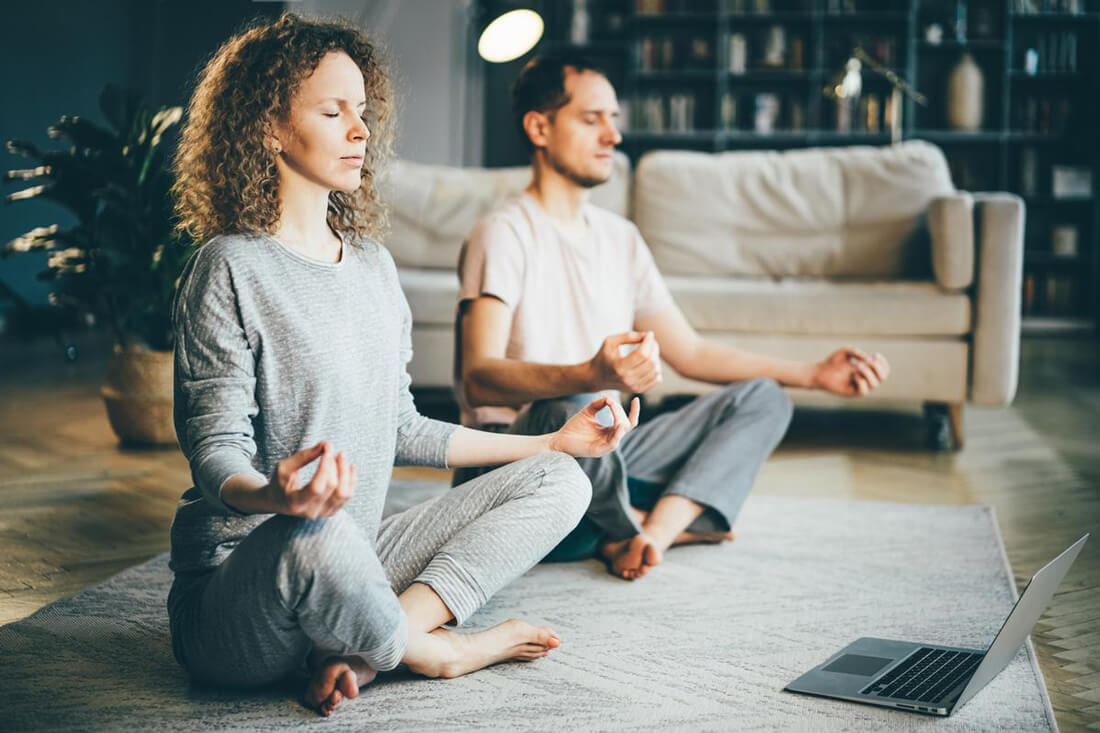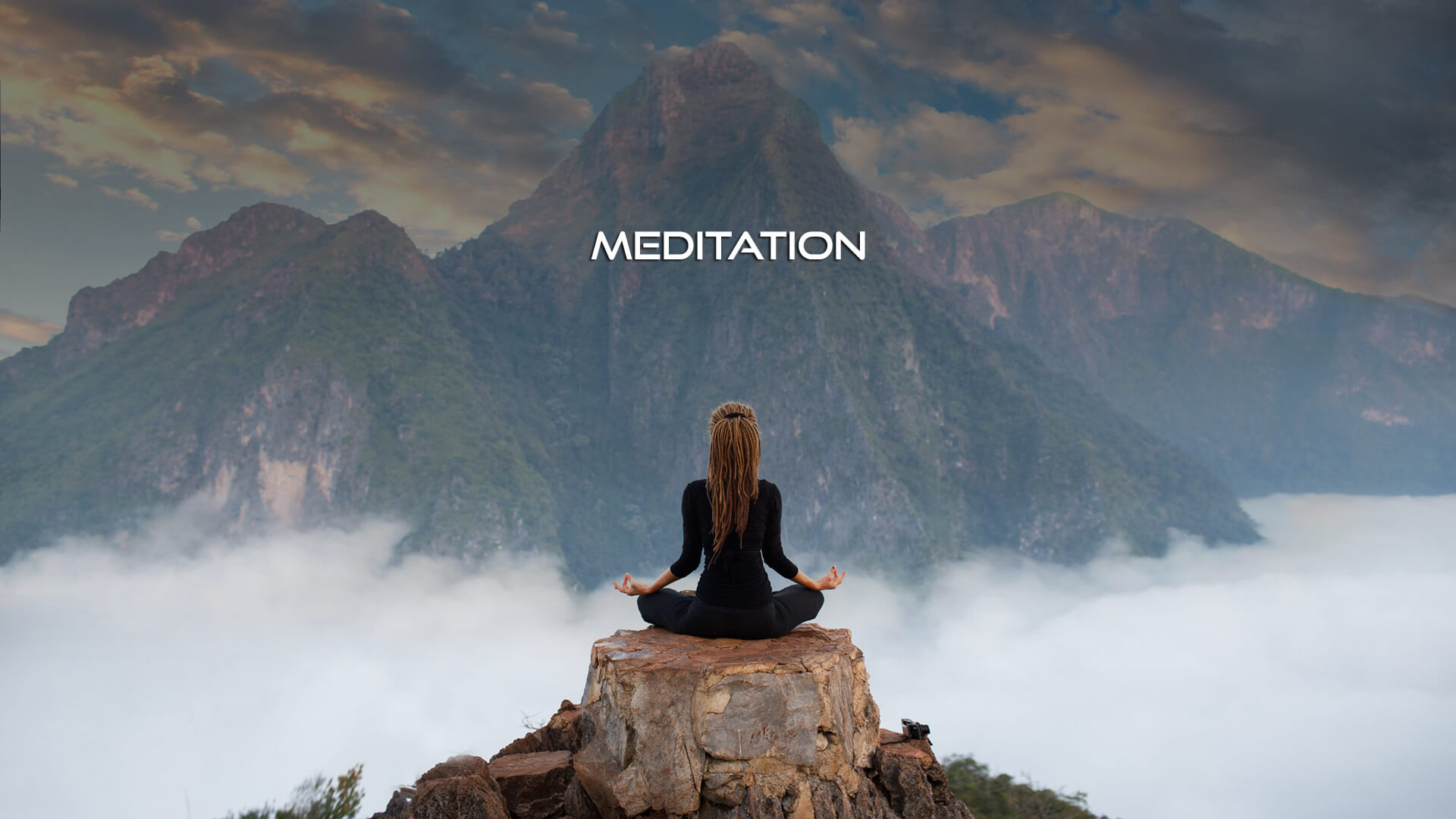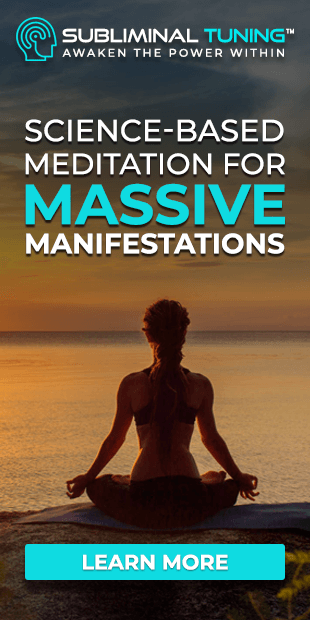Meditation allows you to dissociate with your mind and emotions. It is a personal development tool available to everyone, and it is perhaps the easiest to learn.
Take a deep breath. Focus your awareness. Slow down and read each word. Be aware of yourself reading this sentence. Focus on each word, one at a time. Be aware of every sound running through your mind.
Is it the voice in your mind reading these words to you, if that’s you? If that’s you, then who is it that’s doing the listening?
The words above may have guided you into a form of meditation.
The reason is that it made you aware of your thoughts and helped you separate yourself from the thoughts running through your mind.
Anyone with conscious awareness can practice meditation. You can do it anywhere, on a bus, in a monastery, in your bedroom. You can even do it now as you read this article. Expert meditators can even do it when they are asleep.
Meditation has numerous health benefits, including:
- Stress reduction
- Anxiety control
- Promotes emotional health
- Enhances self-awareness
- Lengthens attention span
- May reduce age-related memory loss
- May help fight addictions
Anyone Can Meditate

Anyone can learn how to do it in minutes, and once you have learned how, you will never forget it.
Practicing meditation for as little as just 10 minutes per day can help you become happier and healthier. Practicing it for 30 minutes per day could change your life immeasurably.
Yet, so few people do it regularly. But why?
It’s tough to do! Seriously, take a few minutes, sit comfortably, close your eyes, and try to think about nothing for just one minute. I guarantee you can’t do it (Zen Masters and Buddhist Monks not included).
When most people try, they soon realize that our minds produce a constant stream of thought. Most of us identify with it so strongly that we don’t even notice. Our mental energy gets drained by an endless stream of useless thoughts and opinions:
“I hope the Giants win tonight. Wonder if Laura will ever call me back. I enjoyed the date last night, but maybe I should have chosen a nicer restaurant? Never mind, it’s silly to worry about that. I wonder if that new Chinese restaurant near Charlie’s house is good? I should call Charlie. It’s been ages since I talked to him. He can be so negative sometimes, though. I should go and see a movie this weekend. Wonder what to watch, though. I can remember when I saw that one movie with Rachel, my high school girlfriend. How young and innocent we were. Anyway, I should call Charlie. I should call my Mum too; she gets upset if I don’t call her often enough. Oh no, I can’t now; today’s Thursday, and Game of Thrones is on TV.”

That is the average mind’s sound daily, and most people are very rarely even aware of it.
Meditation Develops Your Mind
Meditation develops your mind to become more selective of the thoughts you have. By only focusing on useful and important thoughts and letting go of the rest.
Your mind is a muscle, which means meditation is how you take it to the gym and pump up.
As you learn to control your mind, it becomes stronger. You become more able to consciously control the things you focus on and how you process information.
Strengthening and developing your mind through meditation creates positive outcomes in almost every aspect of your life. Your emotional health and self-esteem, general performance, discipline, relationships, stress levels, and overall happiness can drastically improve.
How to Meditate
There are numerous different methods and techniques for meditation. The great thing is none are the right or wrong way. Different techniques suit different people.
Anything which makes you focus your mind and narrow your conscious awareness is a form of meditation, whether it involves using mantras, counting breaths, or chanting.
It is often more simple to start with the fundamental method of sitting and counting your breaths. This is the easiest method to perform.
Start by setting aside 10 minutes. Set a timer or alarm because you will more than likely feel the temptation to stop the process before the time is up.
Find a quiet place without distractions. Sit down with crossed legs. Don’t worry too much if crossing legs is a struggle; cross them as much as you can while remaining comfortable.
Try and sit straight while keeping your back as straight as possible. Look straight ahead, and you can keep your eyes open or close them if you find this more comfortable.
With your hands, do whatever is most comfortable. You can rest them on your lap, put them on your knees, or go full-on zen mode and use the traditional palms facing up position.

Next, clear your mind and attempt to think about nothing. Focus your breath by breathing in through your nose and out through your mouth.
Try to breathe in until your lungs are full of air and your belly expands out. You can then slowly exhale. Repeat the process and count each inhale, exhale cycle as one breath.
Random thoughts and distractions will come up during the process. When you are just beginning, they will come up often and sometimes without you even noticing them. When this happens, start the count over again, beginning at number one.
Be patient with yourself. Please don’t get angry or frustrated with the process, as it takes time to master. When you notice random thoughts coming up, acknowledge the thought, let it go, and re-start your count.
Try and do this for the full 10 minutes. It may only be a small amount of time, but it will feel like a lot more. By the third or fourth minute, you may already feel like a full hour has passed.
There is a good chance that your mind will start to wonder as random thoughts keep creeping in by this stage. Remember, when this happens, start the count over again from one.
As mentioned, this is one of the most basic forms of meditation. With every session you complete, you should feel clear-headed and relaxed.
With regular practice, you will reach a stage where you can keep your mind free from thought for the entire duration of the process. Once you reach this stage, you can try other meditation techniques, as you will have the basics completely nailed.
Meditation Benefits
Meditation has a huge amount of scientific research backing up its numerous positive effects. Many different studies using MRI and EEG machines have shown us that regular meditation can rewire neural pathways in our brain.

Doctors and Psychologists agree that the regular practice of meditation has the following benefits:
Decreases Stress and Anxiety
Regular practice of meditation decreases stress and anxiety. Meditation is often prescribed to patients with anxiety disorders. It has also been shown to help control panic attacks and generally calm the nerves.
Improves Your Focus
Regular meditation can help you to retain focus on certain tasks more than those who don’t. Regular meditation also decreases possible deviation from tasks.
Increases Self-Awareness
Psychologists have observed that patients who use meditation tend to develop a greater level of self-awareness.
Improve Your Physical Health
Those who meditate sleep better on average, have lower blood pressure, lower heart rates, and get sick less.
Improves Emotional Stability
Meditation is very effective for those who are prone to anger or sadness outbursts. Meditation can help to regulate and control emotions.
Increases Memory and Clarity
Those who meditate regularly can remove unnecessary or limiting thought patterns. In essence, this frees your mind only to retain what is important and useful.
Develops Intuition
Often called your “instinct,” “gut reaction,” or “intuition,” meditation develops your subconscious decision-making.
References:
Hari Sharma: Meditation: Process and effects
Anne Trafton: The benefits of meditation






